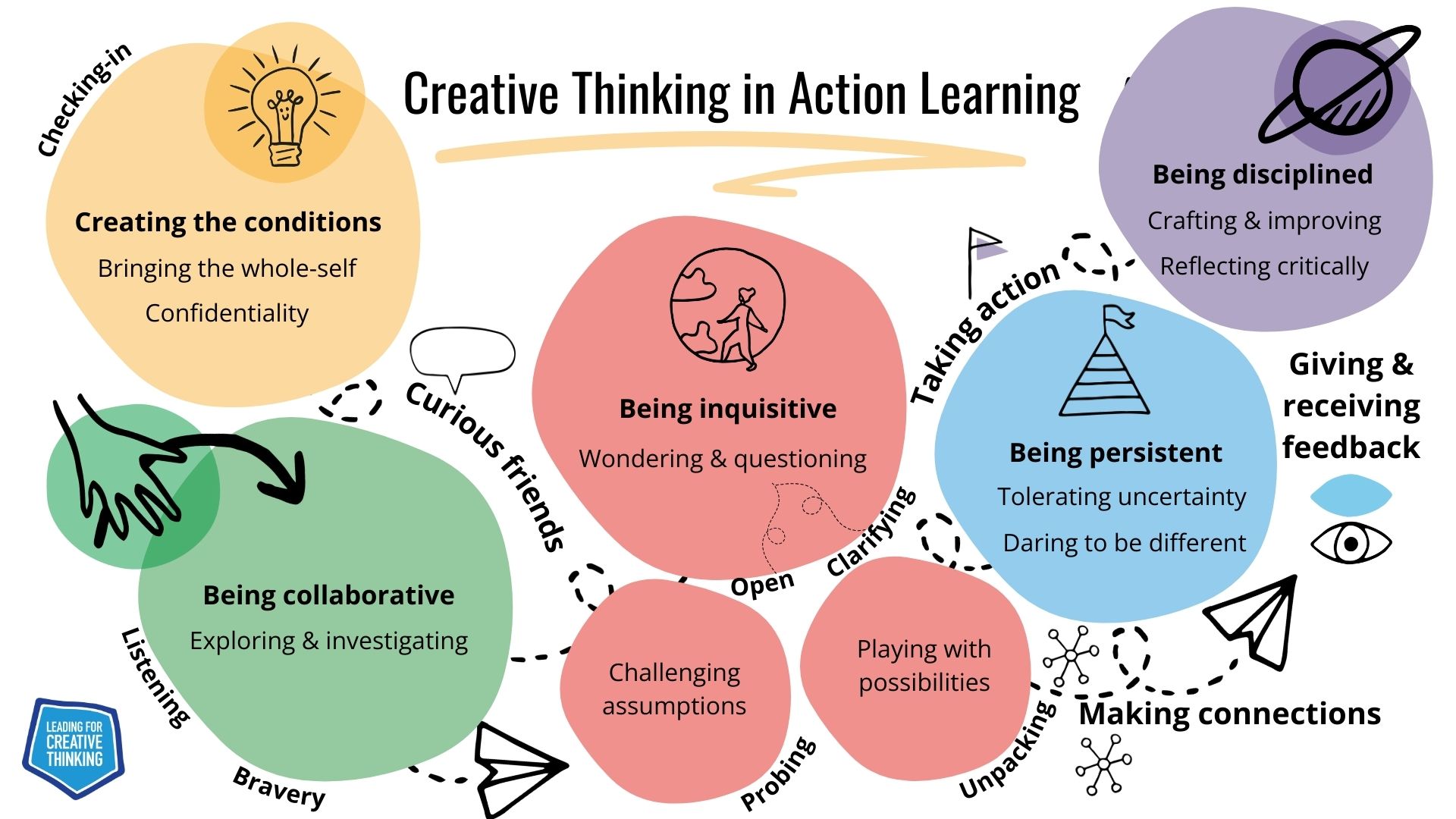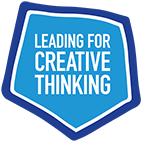Creative Thinking in Action Learning
Ever wondered how creative thinking can transform school leadership? Great leadership thrives on creative thinking, deep inquiry, and bold action. Last week, we put this into practice by bringing three creative school leaders and primary phase colleagues together for a session of Action Learning – a dynamic process to reflect, question, and collectively tackle real-world frustrations around embedding creativity into schools.
“There can be no learning without action, and no action without learning.”
What Is Action Learning?
Action Learning is a structured, inquiry-based approach where individuals collaborate in small groups (Action Learning Sets) to address pressing challenges. Through cycles of questioning, reflection, and action, participants develop solutions while enhancing their own leadership skills.
This approach aligns naturally with our five Creative Habits model, fostering a culture of creativity, innovation, and continuous learning. When combined, Action Learning and the Creative Habits reinforce each other - the framework of Action Learning enables these habits to be modelled and practised, while the habits ensure open-mindedness, deep inquiry, and breakthrough thinking in the learning process.

Conditions & Collaboration
Action Learning creates a safe, open space for dialogue, where school and teacher leaders can reflect deeply, leverage collective intelligence, and tackle challenges together. It is built on trust and collaboration, where leaders support each other, listen actively, and challenge thinking in a constructive way.
Through this process barriers are broken down, trust is strengthened, and diverse perspectives spark action, driving impactful and lasting change in schools.
Inquisitive & Imaginative
At the heart of Action Learning is inquiry - the art of asking open and deeper questions, challenge assumptions and unlock new insights. In our session, we acted as curious friends, we pushed beyond surface-level and explored the why and the context behind the frustrations.
This approach nurtures imagination, empowering participants to go beyond conventional thinking and play with new possibilities, with opportunities to see the world differently and where creative solutions can emerge.
Persistent
Action Learning is a process of continuous reflection, iteration, and growth. It embraces uncertainty and setbacks as valuable learning opportunities. Just like the Creative Habit of persistence, this approach encourages leaders to keep refining ideas, testing solutions, and developing resilience - key qualities of creative leadership.
Disciplined
Action Learning emphasises and encourages structured questioning and the creative habit of critical reflection, with actions being analysed, refined, and improved based on the learning from their implementation. This structured action-reflection cycle, requires consistent effort, critical evaluation, and thoughtful application of ideas – essential elements for making sustainable improvements and embedding creativity into schools.
How might you apply this approach?
- Reflect on a current challenge in your school-how might creative thinking through action learning with some trusted colleagues transform it into an opportunity for innovation?
- Imagine if every department in your school applied creative thinking and Action Learning principles—what possibilities and cultural shifts do you envision emerging as a result?
Join Us for the Next Action Learning Session!
Are you a secondary phase school or teacher leader looking to explore and experience how Action Learning can support creative thinking in schools? Join our next online Action Learning session in September here!
Secure your spot and join a community of forward-thinking school leaders dedicated to driving creative change.
